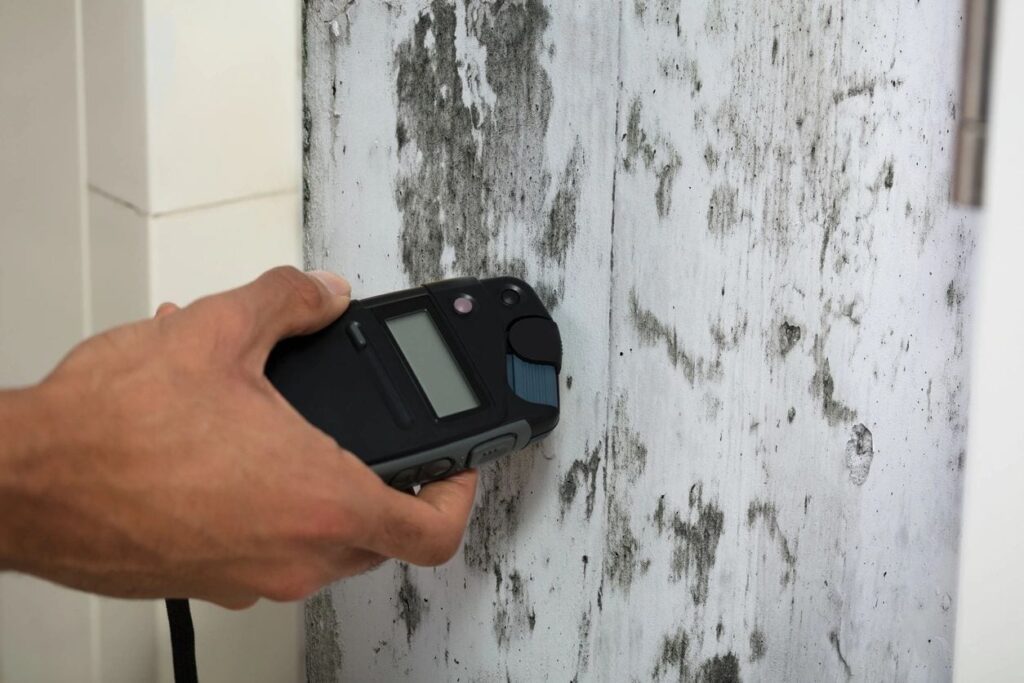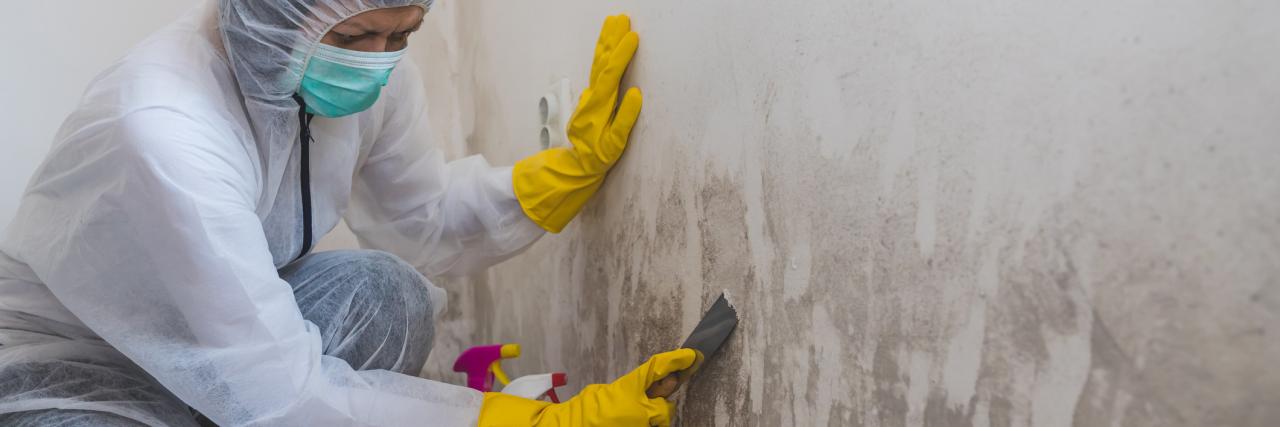The Importance of Mold Inspections in Preventing Health Hazards in your home
Mold is a common problem in many homes, posing serious health hazards. Mold spores can cause respiratory problems, allergic reactions, and other health issues, particularly for those with weakened immune systems. That’s why it is important to take mold growth seriously and to get a mold inspection as soon as you suspect a problem.
In this blog post, we will explore the importance of mold inspections in preventing health hazards in your home and why it is essential to have regular mold inspections to keep your family safe and healthy. We will discuss the health hazards associated with mold growth, how mold inspections work, and what to look for in a professional mold inspector.
Why is Mold Inspection Important?
Mold inspection is important for several reasons. Mold growth in homes or other buildings can pose serious health risks to the occupants and cause structural damage to the building. Therefore, detecting and addressing mold growth as early as possible is critical for the safety and health of those living or working in the building. Here are some reasons why a mold inspection is important:
- Health Risks: Mold can cause various health problems, especially for those allergic or sensitive to mold. Mold exposure can lead to respiratory issues, skin irritation, headaches, allergies, asthma, nosebleeds, and even more serious health problems like lung infections and brain damage. The damage caused by mold can be especially serious for those with compromised immune systems.
- Structural Damage: Mold growth can also cause damage to the building’s structure. Mold feeds on organic materials like wood and drywall; if left unchecked, it can weaken the building’s structural integrity. Mold inspections can identify areas where mold growth is present and allow for its removal before it can cause significant damage to the building.
- Property Value: The presence of mold can also decrease the property’s value. If mold growth is detected during a home inspection when buying or selling a property, it can negatively impact its value. Regular mold inspections can help prevent this by catching mold growth early and addressing it promptly.
- Insurance Coverage: Some insurance companies may not cover damages caused by mold growth if it is found that the homeowner neglected to maintain the property properly. Regular mold inspections can help provide evidence that the property was regularly inspected and maintained, increasing the chances of coverage in case of mold-related damages.
Mold inspection is important because high humidity levels can lead to mold growth. To prevent this, homeowners should use dehumidifiers to ensure indoor air quality is maintained at a healthy level. A comprehensive mold inspection will help homeowners identify areas of potential mold growth and ensure they take the necessary steps to prevent mold growth in their homes.
Homeowners should also be encouraged to locate and repair all plumbing leaks and water intrusions to prevent mold growth. Finally, professional remediation should be sought if a home inspection turns up a ‘mold-like substance’ or visible signs of mold growth.

What Happens During a Mold Inspection?
During a mold inspection, a trained professional will visually inspect the property to identify any signs of mold growth, water damage, or other conditions that could lead to mold growth. Here are the steps involved in a typical mold inspection:
- Visual Inspection: The inspector will visually inspect the property, looking for any visible signs of mold growth, water damage, and other conditions that could promote mold growth. The inspector will typically use tools like a flashlight and moisture meter to help identify problem areas.
- Air Sampling: The inspector may take air samples to test for mold spores. This involves using a specialized pump to collect a sample of the air, which is then sent to a laboratory for analysis. The laboratory will identify the types and amounts of mold spores in the air sample.
- Surface Sampling: The inspector may also take surface samples of areas showing mold growth or water damage. This involves collecting and sending a mold sample to a laboratory for analysis. The laboratory will identify the types of mold present and provide information about the severity of the mold growth.
- Moisture Mapping: The inspector may use a moisture meter to identify areas of the property where moisture levels are elevated. High moisture levels can indicate areas where mold growth is likely to occur.
- Report: The inspector will provide a detailed report of their findings, including any areas of mold growth, water damage, or other conditions that could lead to mold growth. The report may also include recommendations for remediation and prevention of mold growth.
- Remediation: The inspector may recommend remediation if mold growth is detected during the inspection. This typically involves hiring a professional mold remediation company to remove the mold and address any underlying issues that led to the mold growth.
Health Hazards Associated with Unchecked Mold Growth
In the past, mold growth in a home was seen as a sign of uncleanliness or a possible problem. However, mold testing has become vital to home inspection and remediation services. When left unchecked, mold can cause many health hazards for people with allergies, respiratory issues, or asthma. Symptoms of mold exposure include headaches, allergies, nosebleeds, and asthma.
These may occur suddenly or gradually. Therefore, homeowners must check for leaks inside and outside of their home and ensure their home is free from conditions that foster mold growth. Professional mold inspection services can help identify the mold source and recommend how to prevent it from spreading. This will help ensure a healthy atmosphere in the home and protect the occupants from potential health risks.
It is important to note that the severity of the health hazards associated with mold growth depends on several factors, including the type of mold present, the length of exposure, and the individual’s sensitivity to mold. Therefore, it is important to address mold growth as soon as it is detected to prevent health problems for building occupants.
When You Should Get a Mold Inspection
A mold inspection is recommended if you notice strange smells in your home or have recurring medical conditions related to mold exposure. These checks can help you identify mold and other potential water damage issues before they become bigger problems.
A mold inspection should be conducted if you purchase a new home or move into a different one. It can help you ensure the house is mold free and free of any water damage. Also, if your home has experienced water damage due to busted pipes, overflowing toilets, or a roof leak, it is essential to get a mold inspection. This will help identify the areas where mold has spread and take the necessary steps to prevent further exposure.
Your immune system may depend on the presence of mold for its proper functioning. Thus, it is essential to conduct mold inspections regularly to prevent any potential health hazards.
Finding the Right Professional for Your Mold Inspection
A mold inspection is an important step in the mold remediation process. This helps ensure that the mold problem is properly identified and addressed. Depending on the size of the mold problem, a professional mold inspector may use imaging equipment to help identify mold growth and assess structural damage. The professional should have the appropriate equipment to detect mold growth and determine the severity of the problem. This may include moisture meters, air sampling equipment, and infrared cameras.
If you plan to perform a structural assessment, it’s important to research and finds a verified Mold Specialist. It is vital to check online reviews and get free price estimates from local Home Inspectors before deciding. The mold inspection professional you choose should have the appropriate certification and licensing to perform mold inspections in your state. Be sure to verify their credentials before hiring them.
Look for a mold inspection professional who has extensive experience in the industry. An experienced professional will have the knowledge and expertise to identify mold growth and recommend appropriate solutions. Ensure the professional has liability insurance to protect you in case of any damage during the mold inspection.
By choosing a professional mold inspector, you can easily begin cleaning your home of mold. Please ask your family, friends, or colleagues for referrals if you have any questions.
Conclusion
Mold growth is a serious problem that requires professional mold removal. Ignoring mold growth and mold remediation can cause health problems for you and your family. That’s why it’s vital to get a mold inspection done by a mold removal company. An expert mold inspection helps protect your family from health hazards caused by mold growth and ensures quality remediation of mold growth in your home.
At Healthy Home Environmental Services, LLC, we offer various mold inspection services that can help ensure the safety and quality of your home. Contact us today to learn more about our mold inspection services and how we can help protect your family from mold-related health problems.



